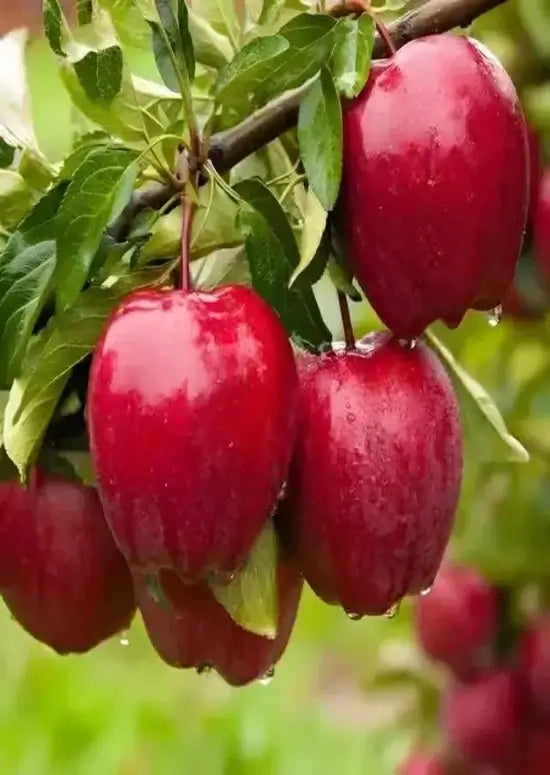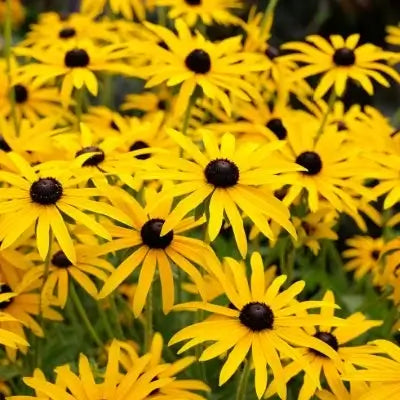Tennessee Wholesale Nursery Has Lots of Wholesale Black Locust Trees Available
The Black Locust Tree: Ecology, Characteristics, and Uses
The Black Locust tree (Robinia pseudoacacia) is a remarkable and versatile species that has captured the attention of ecologists, arborists, and foresters alike. Renowned for its rapid growth, striking appearance, and numerous applications, the Black Locust is uniquely located in natural ecosystems and human societies. In this article, we will delve into the Black Locust tree's ecology, characteristics, and uses.
Ecology
Native to the southeastern United States, the Black Locust tree has expanded its range to various parts of North America and beyond due to its adaptability and resilience. It successfully colonizes disturbed areas, such as old fields, roadsides, and abandoned lots. This aggressive colonization is attributed to the tree's ability to fix nitrogen from the atmosphere through its symbiotic relationship with nitrogen-fixing bacteria in its root nodules. This enriches the soil and provides a competitive advantage to the Black Locust over other plant species.
Despite its ecological adaptability, the Black Locust is often considered an invasive species in some regions due to its tendency to outcompete native vegetation and alter ecosystem dynamics. Its dense growth and allelopathic properties (the ability to release chemicals that inhibit the growth of other plants) can lead to reduced biodiversity and changes in soil chemistry.
Characteristics
1. Physical Appearance: The Black Locust tree is recognizable by its distinctive features. It typically reaches 30 to 80 feet and has a straight trunk with rough, deeply furrowed bark. The leaves are pinnately compound, with multiple leaflets arranged along a central stalk. These leaflets are elliptical and have a smooth margin, contributing to the tree's elegant appearance. The tree produces fragrant, white, pea-like flowers in late spring to early summer that grow in elongated clusters called racemes. These flowers are aesthetically pleasing and attract pollinators, making them ecologically significant.
2. Wood Quality: One of the most notable characteristics of the Black Locust is its solid and durable wood. The heartwood of mature trees is resistant to decay, insects, and adverse weather conditions. This makes it a sought-after choice for outdoor construction and applications where durability is paramount, such as fence posts, railroad ties, and decking.
3. Invasive Traits: While the Black Locust has beneficial qualities, its invasive tendencies can pose challenges. The tree's rapid growth, coupled with its allelopathic properties, can suppress native vegetation and disrupt natural ecosystems. Land managers sometimes need to monitor its spread to prevent ecological imbalances carefully.
Uses
1. Wood Products: The Black Locust's solid and durable wood has been historically used for various purposes. Its resistance to decay and rot makes it an excellent choice for outdoor applications, including fence posts, utility poles, and railroad ties. The wood's strength is also suitable for construction beams, flooring, and furniture.
2. Ecological Restoration: Despite its invasive traits, the Black Locust can play a role in ecological restoration. Its ability to fix nitrogen and improve soil quality can be harnessed to facilitate the establishment of other plant species in degraded areas. However, its use in restoration projects requires careful planning to avoid unintended negative consequences.
3. Honey Production: The Black Locust's fragrant flowers are a valuable resource for beekeepers. The nectar they produce is high in sugar content, making it a sought-after source for honey production. Black Locust honey is prized for its delicate flavor and light color.
4. Medicinal Uses: Traditional medicinal practices involve using various parts of the Black Locust tree. For example, Native American tribes used the inner bark for treating skin ailments, while the flowers were used to make infusions for sore throats and respiratory issues. However, caution is advised when using any plant for medicinal purposes, as improper use can lead to adverse effects.
Conclusion:
The Black Locust tree is a multi-faceted species that evokes admiration and caution. Its adaptability, rapid growth, and valuable wood make it a favored choice for various applications, from construction to honey production. However, its invasiveness and potential to disrupt native ecosystems warrant careful management and consideration. As we continue to appreciate the Black Locust's contributions to human endeavors and ecological processes, it is essential to balance its utilization and the preservation of native biodiversity.
This tree is so desirable as a fiber source due to its strength. The wood is mainly made up of evenly distributed fibers which add tremendous depth to the forest. This fabulous tree also has excellent potential as an energy source. Its wood is a literal storehouse of chemical extractives. The leaves are extremely high in nitrogen and have also been used for animal feeding trials. The success in this area is mixed. When a comparison of 10 woody plants along with fodder for their chemical compositions, Black Locust was bout to be superior to all other species regarding crude protein content.

































































































